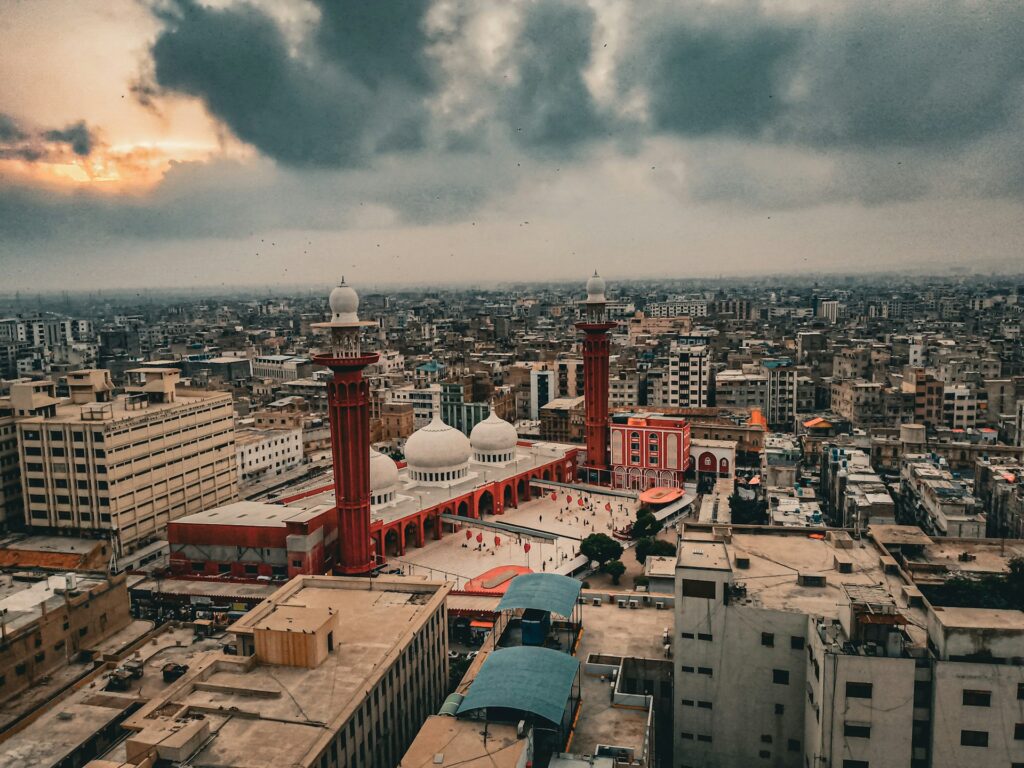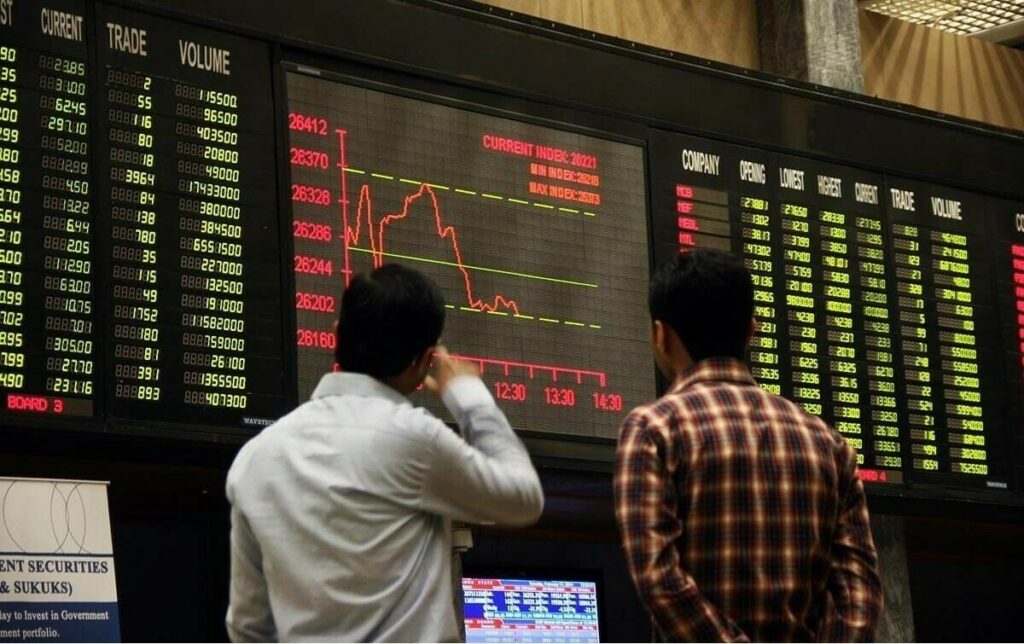KARACHI — The Pakistan Stock Exchange (PSX) suffered a major shock on April 24, 2025. The KSE-100 index, the PSX’s leading benchmark, plunged over 2,500 points within the first minutes of trading. This was one of the steepest intraday falls recorded at the Pakistan Stock Exchange in recent years. The sudden collapse reflected growing investor fears amid worsening political tensions with India.

Geopolitical Tensions Spark Market Panic
The panic began after a deadly terrorist attack occurred in the Kashmir region. India responded by suspending the Indus Waters Treaty, heightening tensions with Pakistan. Additionally, India closed the Attari trade checkpoint, disrupting critical cross-border activities.
These aggressive actions triggered immediate alarm across the Pakistan Stock Exchange. Investors quickly reacted by pulling out from stocks and safer sectors alike.
Pakistan’s Swift Response to India’s Actions
Pakistan retaliated by suspending all trade relations with India immediately. It also closed its airspace to Indian airlines, halting aviation routes.
These swift diplomatic moves increased uncertainty within financial markets. Investors at the Pakistan Stock Exchange saw these developments as signals of deeper conflict. Concerns about long-term economic disruption grew rapidly.
Heavy Selling Across Key Sectors
The heavy sell-off swept across all major sectors on the Pakistan Stock Exchange. Banking, energy, and telecommunications stocks experienced the largest declines. Trading volumes surged as investors scrambled to exit risky positions. Although partial recovery happened later, the overall market closed deep in the red. The PSX recorded one of its busiest trading days amid the panic.
Technical Disruptions at the Pakistan Stock Exchange
The Pakistan Stock Exchange portal faced significant technical disruptions during peak trading hours. Many investors reported difficulty accessing accounts or executing trades in real time. Speculation suggested trading might have been intentionally slowed to control market panic. However, PSX authorities have not formally confirmed these claims. These technical issues further eroded investor confidence in an already fragile environment.
Economic Recovery Faces New Threats
Before the latest tensions, Pakistan’s economy had started showing signs of recovery. Inflation had fallen to its lowest levels in decades, easing pressure on households. The International Monetary Fund projected a 2.4% GDP growth for 2025. The World Bank forecasted a slightly higher growth estimate of 2.7%. However, persistent instability threatens to undo gains across key sectors represented on the Pakistan Stock Exchange.
Analysts Urge Diplomatic De-escalation
Leading analysts stress the urgent need for diplomatic dialogue between Pakistan and India. They warn that ongoing tensions could discourage both local and foreign investors at the Pakistan Stock Exchange. Political instability could also slow reforms critical to economic recovery. Analysts believe restoring peace is essential to stabilize financial markets. Without diplomacy, further financial shocks remain likely.
Investor Sentiment Remains Fragile
At present, sentiment at the Pakistan Stock Exchange remains fragile and cautious. Investors are reluctant to make fresh commitments until political clarity emerges. Stock market volatility is expected to persist in the short term. The KSE-100’s future trajectory largely depends on diplomatic developments. If tensions continue, Pakistan’s financial markets could face prolonged uncertainty. The episode highlights how sensitive Pakistan’s markets remain to external shocks and underscores the need for diplomatic efforts to stabilize the situation.

